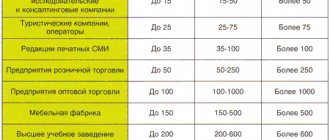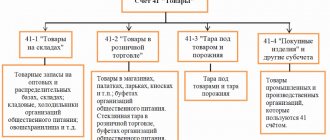- KtoNaNovenkogo
- FAQ
- Are you here
July 29, 2019
- Who is a distributor
- His tasks and rights
- What is distribution
- How is a distributor different from a dealer?
Hello, dear readers of the KtoNaNovenkogo.ru blog. We all, willy-nilly, are immersed in the terminology of doing business. And quite often we come across words whose meaning is not fully understood.
One such term is distributor. Who or what is this? What does he do? What is distribution anyway and why is it needed? How does a distributor differ from a dealer? You will learn this and much more from this tiny note.
What is distribution and distributor in simple words
A distributor is an official sales representative of the manufacturer of goods/services. It distributes products to wholesalers or retailers, and they sell them to the final consumer.
The distributor (usually) does not have direct contact with consumers. Before ending up in the hands of the final buyer, a product usually goes through the following chain: manufacturer - distributor - dealer - retailer - consumer. Some companies shorten the length of the chain by eliminating some links.
Distributor is translated from English as “distributor”. It is impossible to say for sure how to pronounce the word distributor or distributor correctly. Both spellings are acceptable.
A distribution company for a manufacturer is a way to effectively sell and distribute goods. The distribution strategy consists of creating and managing a system of sales channels.
Distribution can be handled by 1 person or a staff of employees. This usually depends on the size of the manufacturing plant of the product.
Basic principles of distribution:
- independent decision-making, action in a specific market;
- balanced decision-making with preliminary calculation of possible risks;
- financial risks and responsibilities fall on the distributor;
- the ability to provide loans to business partners;
- the ability to independently set the cost of goods, introduce promotions, discount programs, sales.
Tasks, rights and responsibilities of the distributor
There are two categories of distributors:
- general , engaged in the sale of goods using their own resources, including infrastructure;
- exclusive , selling goods through dealers (who is this?), Retailers.
Representatives of this profession rarely work with direct consumers: they cooperate with sellers (wholesale and retail).
A distributor's responsibilities depend on the type of product he distributes. If these are expensive compact goods, then a small batch of them can be sold by one distributor. And if the product is massive, you need a large staff, several representative offices in different regions, well-established logistics (what is this?) and transport services.
The responsibilities of the exclusive and general distributor include :
- marketing in all its forms;
- delivery of goods (under contract);
- creating a network, solving transport and logistics problems;
- solving problems of storing goods, monitoring inventory availability;
- concluding contracts defining property rights to lots of goods;
- price regulation.
How distribution works
The manufacturing company attracts one or more distribution companies to cooperate. Such companies operate independently of each other, sometimes on different terms. However, to improve productivity, they often unite and create a distribution network.
The network consists of several levels and covers large areas. The benefit of the association is that each member receives income not only for his own sales, but also for the lower-level distributors he attracts.
It is necessary to perform step-by-step tasks to create a network:
- Strategic. They think through management strategies and optimize network operation. Developing a plan to increase sales volumes.
- Tactical. At this stage, a management system, documentation, planning, etc. is being developed.
- Operating rooms. The last stage involves the construction of warehouses, concluding contracts with manufacturers and dealers, introducing already developed management systems and documentation.
A manufacturer working with a distributor does not look for sales markets on its own. He simply supplies the goods to the distributor at a price that is favorable to both parties. The latter independently promotes the product, searches for markets, making money on the difference between the purchase price of the product and its delivery to retail outlets.
A distribution company is engaged in more than just supplying goods. She also deals with customer service, accounting issues, product delivery, replacement, and warranty repairs.
Distributor development direction
So, the economic importance of such a large-scale intermediary as a distributor is clear. It is also more or less obvious that everyday work for a distributor is a constant balancing act between the level of accounts payable and accounts receivable. It also becomes clear why this business cannot be combined with a manufacturing one - merging with an enterprise that is so heavily burdened with debt will, first of all, have a negative impact on the manufacturer itself (and he also has his own debt).
However, there is one direction for development that the distributor should strive for - this is entering the retail sales market. This economic feasibility is dictated by a much higher margin in the retail market than in the environment of wholesale and small-scale wholesale dealers. In other words, the most profitable for a large wholesale intermediary will be sales to the end consumer, since in this case the distributor will keep the entire margin for himself.
The development process usually looks like this : as reserves of net retained earnings accumulate, retail outlets that meet the technical parameters (be they small-format stores or large supermarkets and showrooms) are acquired from them. Usually we are talking about creating a network under a single brand, but what is characteristic is that the retail network is still not aggregated with the distributor into a single enterprise - supply agreements that are friendly in terms of their terms are simply concluded between them.
Entering the retail market is perhaps the only economically viable direction for the development of a distribution company within one industry. And only after the retail market has been mastered will it be possible to think about purchasing production assets directly.
Kinds
There are two types of distribution. They differ in the type of cooperation with the manufacturer.
Types of distribution:
- General. Has the right to sell products using its own distribution channels or using the services of a dealer. Often engaged in exporting products abroad.
- Exclusive. An exclusive distributor has the right to cooperate with only one manufacturing company. In turn, the manufacturer also supplies its products to only one distribution company. Typically, exclusive distributors sell products through a network of dealers.
Almost any entrepreneur can sell products directly from the manufacturer, but this does not make him a distributor, despite the fact that he performs all his functions. To obtain the right to be called so, the company must enter into an official agreement with the manufacturer.
One company can enter into an agreement with several distributors at once. Often different areas or service segments are distributed between them. Therefore, there is no pronounced competition.
Types of distributors and dealers. Their duties and functions
Distribution is one of the key areas in trade, so people working in this area must be competent and have a steely character. At the same time, their responsibilities to the dealer include:
- providing a detailed report on the results of transactions (purchase and sale of goods);
- timely provision of information to the business partner about the state of the sales market, the activities of competing companies, any changes in pricing policy, etc.;
- drawing up a detailed sales plan for purchased products;
- developing characteristics of clients with whom the intermediary cooperates;
- providing a business partner (one or more) with all the necessary information about its activities for a certain period of time (the so-called reporting period).
At the same time, the type of distribution does not matter - absolutely all distributors are required to comply with these rules.
Types of distributors can be very diverse:
- General distributors engaged in importing products into other countries on their own or with the help of dealers (the dealer network is one of the most effective sales, but for safety reasons you should take its choice extremely seriously and responsibly).
- An exclusive distributor is a company that has the right to cooperate exclusively with one manufacturer. In turn, the manufacturer cannot enter into a cooperation agreement with anyone other than this distribution company.
There is also such a thing as a regional representative. While the question of who dealers and distributors are and what they do has been fully disclosed, this position has not yet been mentioned. But many people who are just taking their first steps in the field of trading, or intend to get involved in it, may misunderstand the meaning of the term and find themselves in an awkward position. Therefore, let's look at this issue in more detail.
A regional representative is a person who is one rank above a regular distributor. In other words, his responsibilities include:
- promotion, that is, advertising promotion of the products of the company whose interests he represents;
- organization of promotions, auctions, sales;
- work with distributors, etc.
However, this profession is not as simple as it seems, and the regional representative has many more responsibilities than one might think. Thus, his efforts should be aimed at organizing work not in one specific city, and sometimes not even in the region, but in the whole region. The scale of this region is decided by the company that has entered into an employment contract with the regional representative. Sometimes it can even be an entire federal district, so such a member of the trade sector must spend a lot of time and effort on work.
Types of dealers
Having understood the concept of who a dealer is in trading, it is important to understand the classification of this term. Like distributors, dealers are also divided into 2 groups, in particular:
- Exclusive dealers are companies engaged in cooperation and sales of products from only one manufacturing company. However, they should not be confused with branded stores or retail outlets - these are completely different concepts.
- Who is a franchise dealer and what do they do? Such companies are usually called authorized dealers. They have the right to sell the products of one or several manufacturing companies, but are responsible for the quality of the goods sold only to the consumer.
To top off all of the above, it is worth noting that relationships in the trading market play a huge role for both the distributor and the dealer. That is why almost all of their actions are regulated by an agreement, the violation of which can result in a serious financial collapse for the one who has stepped over the established rules.
Sincerely, Victoria – blog inetsovety.ru
Distribution channels and how a distribution network is built
To understand how a distribution network is built, it is worth familiarizing yourself with the basic rules and standards:
- High quality packaging. Without it, the goods will be wrinkled during transportation.
- Grocery inventory management. Constantly maintaining the optimal quantity of goods is necessary for the correct distribution of products between retail outlets.
- Order processing. The correct organization of the order acceptance system, its collection, preparation, and delivery is important. It is necessary to develop a system for confirming and paying for the order. Distribution channels must operate without interruption.
- Logistics. It is necessary to obtain permits in advance and collect documentation for transporting products abroad, between regions. All equipment for loading operations must be located at the loading site.
- Feedback from clients. This is necessary to clarify order details, warn about delivery times and possible delays, and accept feedback on the quality of the product.
High-quality numeric distribution
Numerical distribution is focused on the quality of cooperation and the profit received from it. These parameters are more important than the quantity of goods sold.
In this case, the description is not provided in numbers, but is described in words. This system is suitable for expensive products that are purchased infrequently.
Quantitative weighted
Weighted numerical distribution does not imply calculation of goods sold. This method calculates the percentage of stores that a brand covers versus outlets that do not carry the product. That is, the number of stores selling the manufacturer’s trademark is calculated.
Quantitative distribution is used to determine how accessible a brand is to customers. To do this, the number of retail outlets cooperating with the brand is divided by the number of stores that do not cooperate with it.
Quantitative and qualitative types of distribution are used for different products. The first option is suitable for products that are purchased frequently, and the second is for expensive goods purchased once for a long period.
Passive and active
Distributors work actively or passively. In the first case, the employee makes efforts to promote the product and advertising. In the second case, the distributor simply delivers the products to retail outlets.
Exclusive
An exclusive distributor works with only one supplier. And he, in turn, supplies the product only to his distributor.
Usually the contract states that the exclusive distributor has the right to use and protect the manufacturer’s trademark, and specifies the territory for sales and advertising.
Digital or content distribution
Digital distribution is an electronic type of commerce. Its difference lies in the fact that the goods are delivered to the buyer not in reality, but virtually.
This distribution business option is suitable for virtual goods (smartphone applications, computer games, programs, music, films, etc.). It is important to ensure almost instant delivery of the purchased product.
What does a distributor do and his responsibilities?
Distributor not only distributes goods to retail outlets. He has a number of obligations:
- building distribution channels and the logical chain necessary for productive sales;
- organization of warehouses with convenient locations, storage and sorting of products;
- transportation of goods, return, exchange of damaged units;
- ensuring proper storage of goods before delivery to the retail outlet, insurance of possible risks;
- providing warranty service for goods;
- provision of various types of services to customers;
- transfer of ownership rights to the supplied goods;
- control of product quality standards;
- pricing;
- searching for dealers and encouraging them to make purchases;
- market analysis, product advertising;
- support and information support for manufacturers;
- preparing products for sale, searching for sales channels.
What is the difference between a dealer and a distributor
The difference between the work of a dealer and a distributor is not always noticeable. Often, the distributor is the initial link in the process of distributing goods from the manufacturer to customers, but it also happens the other way around.
A distributor in regular trade receives the product directly from the manufacturer and then distributes it further along the chain, which includes dealers. In network marketing, a dealer distributes a product to distributors.
The distributor enters into an agreement with the supplier, which clearly states the pricing rules. Typically, a company receives a product at a discounted price and distributes it at full price.
Dealers distribute goods both between retail outlets and directly between end customers. At the same time, they themselves set the markup and create a pricing system.
Another difference between an authorized dealer (having certificates and permits) is that the list of his responsibilities does not include promotion and promotion of the brand. This is a person or company engaged only in the distribution and sale of goods.
It is not always clear what the difference is between a subdistributor and a dealer because these professions are often interchangeable. All contracts are drawn up on an individual basis.
Food distributor as the most popular profession
The most common occupation in the distribution industry is food distributor. He acts as an intermediary between the buyer and the farmer or production.
He purchases products from factories and sells them to retail stores, restaurants, schools, kindergartens, hospitals, etc.
The topic of food is always in demand and will never lose its relevance, which is why factories producing different types of products will continue to appear: dairy, sausage, meat, confectionery, etc.
In turn, grocery supermarkets and online stores will continue to open, which will provide work for food distributors.
Being a food distributor is not difficult. In this case, you do not need to know how, for example, a computer processor works.
Useful links:
- Merchandising and Merchandisers - What they do and How much they earn
- How to earn money for an apartment (in 1-3 years) - methods, ideas and tips
- How to become a rich person from scratch in a year - Steps, Laws and Principles of Success
- List of offshore zones and countries, Offshore schemes, laws and essence
- Who is a Mystery Shopper? How to get a job and how much you can earn
Distributor of a foreign manufacturer
Foreign companies are quite common in the domestic market. To become a distributor of foreign manufacturers, you need to be ready to conquer new horizons, that is, work very hard and fly or travel to another country very often.
The scheme of work is exactly the same as with domestic manufacturers, but the terms of cooperation are much more serious:
- Firstly, you need to know a foreign language and it is not always English. If his knowledge is not there, then you will have to spend money on the services of a translator who will conduct business correspondence and negotiate for you.
- Secondly, only someone who has already reached heights in this field in their country and has good experience can become a distributor.
- Thirdly, if the specifics of the product are such that it is difficult to send it by mail as samples, then you will have to fly to the manufacturer yourself and inspect everything in person.
But if you still manage to conclude a contract, your earnings will increase, since you will have few competitors in the domestic market.
Where can you learn to be a distributor?
How to become a distributor without special education? In fact, this direction is not provided in universities. That is, to work as a distributor, you do not need to have a diploma in this field. You can have absolutely any education: financial, technical, legal, etc., but a major advantage for the distributor himself will be a completed specialty in marketing, management or PR. The skills acquired during training in these three areas play an important role in the distribution business.
But in order to improve your skills and reach greater heights, it is advisable to take special online courses. There are many of them on the web. You don’t even need to go anywhere to study; everything is done online. The cost of such courses varies - from 18 thousand and above, depending on the coverage of the material provided.
From time to time, it wouldn’t hurt to take part in training on sales and handling objections. This will help expand your customer base, which will have a positive impact on your income.
Conclusion
Distribution work is a good option, both on a small scale and on a large scale, ranging from small work for yourself as a side hustle to building the largest distribution business or networks with a turnover of millions. Everyone will be able to find their own direction in this area, taking into account individual wishes, capabilities and goals. The amount of money earned in this business depends on business qualities, diligence and the ability to persuade and sell.
If you find an error, please select a piece of text and press Ctrl+Enter
, and we will definitely fix it! Thank you very much for your help, it is very important for us and other readers!
( 5 ratings, average: 4.00 ). Please rate us, we tried very hard!
How to become a distributor
Becoming a distributor is not difficult. You need to do the following:
- Choosing the direction of work. It is necessary to decide on the products that the organization will represent.
- Assessment of supply and demand. This will help identify free niches with a low level of competition.
- Preparation of premises and equipment. For fruitful cooperation you will need a warehouse, office, and transport.
- Search for manufacturers for cooperation. The Internet and catalogs are used for searching. There you will also learn about the terms of cooperation. Typically, large enterprises cooperate only with large distribution networks.
- Drawing up a commercial proposal that will be sent to the company’s management. It should describe all the advantages of cooperation.
- Personal meeting with a representative of the manufacturer. Here all the details are clarified, the parties form an opinion about each other.
- Signing the contract.
After signing the contract, the company is officially considered a distributor of the manufacturer. To find sales points, you need:
- create your own website describing goods and services;
- get acquainted with the catalogs and websites of companies that will be interested in the offer;
- personally communicate with store employees.
What is a distributor?
Distributors are individuals or business entities that publicly represent the manufacturer and are engaged in moving products from the manufacturer to mass or retail sellers and end buyers.
In essence, a distributor is an intermediary among manufacturers of goods and their sellers, and in some cases, direct customers who purchase this product.
Such intermediaries can be either a business entity with a huge turnover or an individual.
Standard errors
To create a successful distribution business, you need to try not to make mistakes. The main shortcomings are presented in the list:
- Lack of inspections and market analysis. To successfully find markets, it is important to know the level of competition, customer needs and capabilities.
- Working with several manufacturers simultaneously. This is especially true for competing companies. It will not be possible to promote their product equally effectively.
- Selling additional paid services reduces the level of trust in the company.
How to obtain distributor status
Many compatriots are concerned about the question: how to become a distributor. This procedure is carried out in just a few steps, during which the person involved in the implementation receives a new status.
- Selecting a manufacturing company. At this stage, you need to prepare a commercial proposal, which includes detailed information about the company, area of work, mobility, etc. An overview of the product market, estimated product sales volumes, and competitor analysis is provided.
- Organization of contact, for example, at one of the company exhibitions. Once communication has been established, it is necessary to begin correspondence with a proposal for negotiations. At this stage, an agreement is concluded and all formalities are settled.
Once you understand these instructions, you will be able to achieve your goal in a short time.
Upon completion of all formal procedures, the distributor receives a certificate
Distribution scheme options:
- Purchasing from the manufacturer at a discount and providing the latter with promotional materials free of charge.
- Creation of an enterprise with equity participation of several persons. Both of these options are popular today.
Distribution advantages:
- Possibility of receiving an unlimited level of income. It all depends on how well the supply chain and sales system are established.
- Having a lot of free time. This is most important for women, because in this way they will be able to pay more attention to their family.
- Remote employment. There is an opinion that a distributor is a person who takes a large checkered bag and goes to visit all his friends, trying to sell a product. In fact, due to the development of modern technology, many workers conduct their activities on the Internet.
Distribution agreement
It is necessary to conclude a formal agreement, which includes the following points:
- information about liability, sanctions;
- conditions for breaking the contract;
- pricing policy, profit;
- duration of the contract;
- information about the responsibilities of both parties.
A distribution company distributes the manufacturer's goods between retail outlets. Such cooperation is beneficial for both parties. The distributor gets the opportunity to purchase the product at a reduced price, and the manufacturing company shifts the responsibility for searching and developing sales channels to professionals.
Form style
Naming
Package design
Brand book
Brand audit
Brand strategy
Distribution advantages
- Income. The larger the supply and sales chain is created, the more profit the exclusive distributor can make.
- Distant work. In the case when you, as a distributor, essentially resell the product to another distributor, more time is freed up and the need to constantly work from an office or enterprise disappears.
That is why there are people who carry out 90 percent of all processes for buying and reselling goods without leaving their computer.
The largest distributors in Russia
Since the distributor’s activity consists of selling goods of well-known brands, the names of such companies often appear “behind the scenes”.
Take Apple as an example. Everyone is familiar with its products, but few people know that three companies distribute them in Russia: Merlion, DiHous and OCS. A year ago, the fourth one refused to cooperate. Distributor offices are quite logically located in Moscow and St. Petersburg. Well, the delivery of equipment to shelves in the regions is carried out by a network of regional dealers.
The group is in the top ten on the Forbes list. This is the official distributor of , as well as a number of foreign companies, producers of tobacco, coffee and energy drink Red Bull.
The third top ten on the list is opened by another large distributor - Protek. His field of activity is pharmaceuticals.
The already mentioned company Merlion is ranked 35th. It is the largest distributor of digital equipment and electronics in Russia.
Components of a distributor's income
As noted earlier, a special agreement is concluded between the designated intermediary and product manufacturers, according to which he receives the status of a representative of the supplier in the matter of distribution of goods.
In this case, by the decision of the supplier, the following parameters of such cooperation are determined:
- product price;
- the amount of discounts or markups on the wholesale cost of goods;
- region or target audience among buyers;
- product sales period;
- the procedure for mutual settlements.
Thus, the distributor’s income is mostly generated from markups that are set to the wholesale price according to the terms of the contract. Such markups are flexible and depend on the sales period, volumes of goods supplied, form of mutual settlements, etc. These official representatives cover all their costs from the income they receive in the form of markups.
How difficult is it to become a distributor?
We explained who a distributor is and what he does, now let’s find out how to become a distributor. To distribute a manufacturer’s product, you need to conclude a distribution agreement , the result of which is a certificate for the right to officially represent a trademark or commercial name. A distribution agreement is a legal contract that specifies the procedure and volume of purchases, the percentage of discounts and the cost of products purchased from the manufacturer, the conditions for the return of illiquid goods, liability for non-compliance with quality standards and other essential conditions.
Most manufacturers provide a model distribution agreement with standard conditions and prices, which can be read in advance from official documents or publications on the company’s Internet resource.
The agreement may also stipulate requirements for the distributor; as a rule, they depend on the quantity, cost and features of the products. A popular commercial name with an established production system may require the distributor to:
- Availability of transport infrastructure for deliveries;
- Warehouses and storage facilities that meet certain standards;
- Purchases of large volumes of products (and therefore the availability of funds);
- A staff of competent employees to carry out the agreement.
To obtain the status of an exclusive distributor of a foreign company, you will additionally need knowledge of the language of the manufacturing country, the ability to travel frequently to negotiate and solve other problems, as well as experience in product distribution and good sales performance.
If these requirements are met, a legal entity or individual may receive the right to represent a foreign manufacturer and actually become a monopolist in the sale of its products in their country, which will provide large incomes.
Types of dealers
In the trading sphere, there are two types of dealers:
- A retail dealer is a classic type of intermediary between a trading company and legal entities and individuals wishing to purchase goods.
- An exclusive dealer is an intermediary in the sale of original rare goods in a certain region. He owns the right to represent premium products and has the opportunity to make unlimited profits.
To better understand the difference between a dealer and a distributor, let's consider their main functions, rights and responsibilities.
Who is a distributor
A distributor is an individual or legal entity who is an official representative of the manufacturing company and performs the functions of distributing goods from the enterprise to retail or wholesale resellers - dealers. Such a distributor is an intermediary between producers and subsequent traders. This is an important feature of how a distributor differs from a dealer. Although there are some cases when the distributor works with end customers.
A distributor can be either a large company or one person with certain skills and knowledge.
In addition, the distributor has the exclusive right to sell goods at a reduced price without trade markups. These are the most important differences between a distributor and a dealer.
What is the difference between a distributor and a dealer?
Many people confuse a distributor with a dealer, because both act as intermediaries and sellers of goods.
The main differences between them are not stated anywhere in law, because the terms of their cooperation will be specified in contracts.
But generally speaking, the distributor sells goods only in wholesale quantities, and the dealer most often works for small wholesale and retail.
| Criterion | Distributor | Dealer |
| Place in the chain of movement of goods | Second. He purchases goods directly from the manufacturer and can sell them to other intermediaries or end consumers. | Third. It purchases goods from distributors and sells them to retailers or end consumers. |
| Right to official representation | Only the distributor has the right to be an official representative, he acts on behalf of the company | Works on its own behalf, and is therefore more independent and mobile. |
| Purpose | Creation and development of a sales network. The distributor must constantly search for new dealers or retailers. | Sales and delivery of goods to the consumer as quickly as possible at a price favorable to the dealer. |
| Financial benefit | Most often, the price at which the distributor sells the product is indicated by the manufacturer himself. Thus, the representative receives a discount, which will be his income. | The dealer can independently set the price markup. Income will be the difference between the cost of purchase and sale. |
The principle of distribution activities
Who is a distributor? Representatives of this profession are the link connecting the buyer and the manufacturer of goods. As a rule, the distributor independently purchases a large batch of goods from the manufacturer for the purpose of distribution through sales representatives and small retail outlets. It is important to pay attention to the fact that most representatives of this profession prefer to work with foreign manufacturers, promoting their products on the Russian market. Based on all of the above, we can conclude that thanks to this profession, the market is developing and expanding.
Distributors use various schemes to sell goods. Let's take a look at the classic scheme of distribution activities, which consists of three main stages:
- The first stage is the purchase of a wholesale batch of products at a reduced cost.
- The second stage is the distribution of purchased goods through small dealers, sales representatives and small stores.
- The third stage is the promotion of the manufacturer’s products in local and foreign markets.
To put it briefly and simply, a distributor is an intermediary between the manufacturer and the buyer or sellers.
In order to clearly demonstrate the effectiveness of this area, we will provide historical information. In the nineties, Invite powder for making drinks yourself appeared on the Russian market. This product was unknown to anyone, but in just a few months its popularity grew several thousand times. It is thanks to the talented distributors from SI Pro that the products of the Universal Beverages Group company have gained high popularity in the Russian market.
Thanks to the presence of official distributors in other countries, large manufacturers have the opportunity to increase the volume of sales of their products by developing new markets. Most often, this method of product distribution is used by large cosmetics companies. Among them, Avon and Faberlic should be highlighted, which have gained high popularity in Russia.
Who is more important - the distributor or the dealer?
Every manufacturer at the very beginning of their activity wants to create a developed sales network for their products. To do this, it uses both distributors and dealers. Both perform the same role - selling goods. But who brings in more income?
Based on quantitative indicators of sales and profits, the distributor can be considered the most significant link in the trade chain.
As a rule, an experienced distributor has a large sales network, which ensures stable sales volumes.
But if dealers are removed from this process, distributors will be forced to look for buyers on their own. And this will slow down trading and significantly affect the manufacturer’s profits. After all, the ability to work with customers is what distinguishes a dealer from a distributor. Therefore, both distributors and intermediaries are equally important in the trading process.
Requirements for distributors
To carry out its functions, the distributor must meet certain requirements. So, it should have:
- a specially designated place for storing the required amount of goods;
- own dealer network;
- funds for lending to intermediaries;
- qualified personnel.
Such differences between a distributor and a dealer indicate some complexity of the profession, since the distributor must have a certain financial basis.
Distributor functions
The functions of a distributor and a dealer are very similar. The distributor is also involved in selling goods, replenishing stocks of products and finding ways to sell them. But there is still a main feature that distinguishes a distributor from a dealer - the development and maintenance of a dealer network. That is, the distributor is constantly looking for new intermediaries. Thus, in order to increase large sales volumes, each distributor tries to create its own dealer network that would generate a stable regular income.










